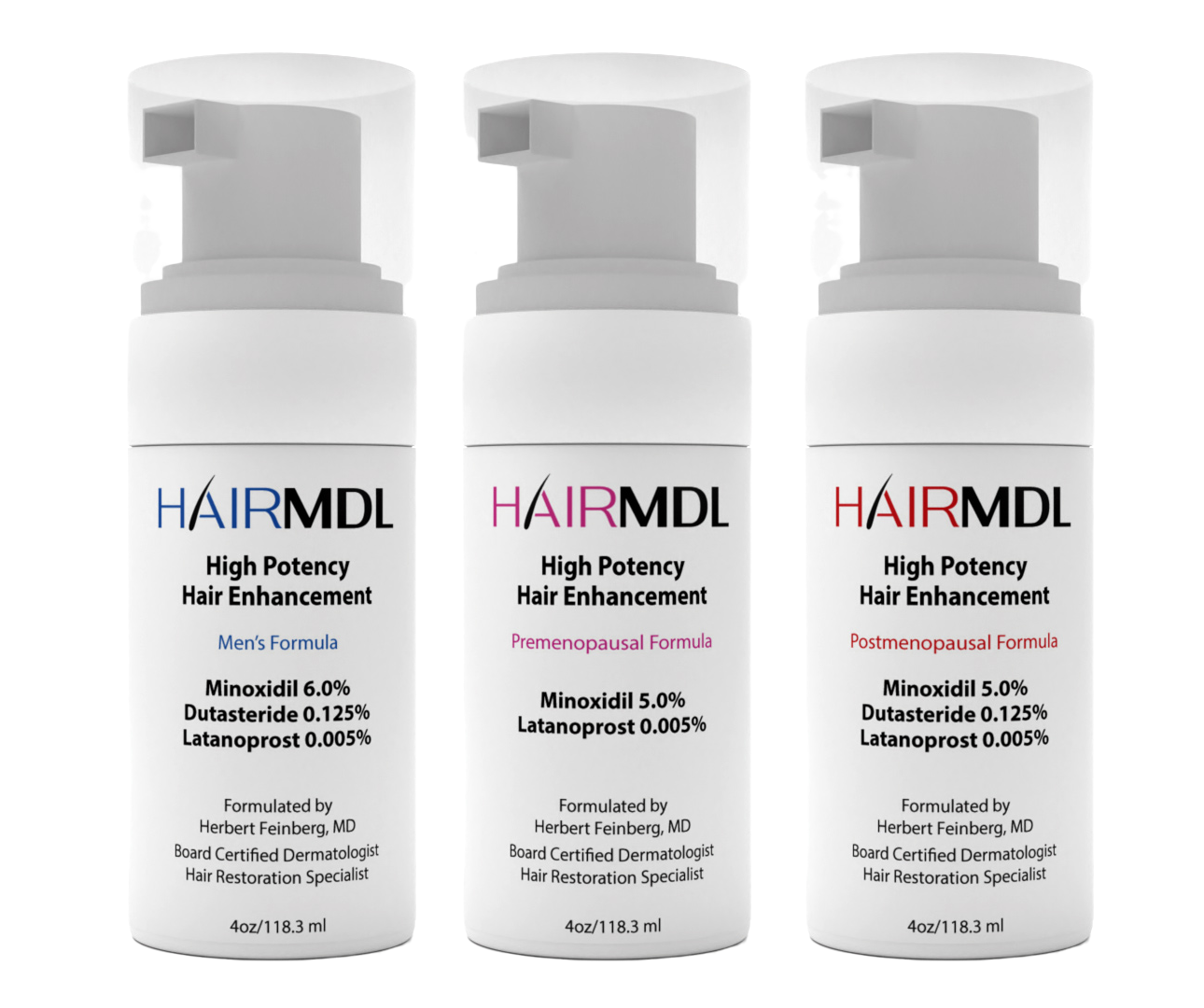When you realize you are experiencing hair loss, your first move may be to turn to the internet for potential remedies. Undoubtedly, your search will yield dozens of results from companies touting their amazing hair growth shampoo that will reverse your hair loss and help your hair grow back thicker, fuller, and healthier than ever.
The shampoo you choose does indeed have an impact on your hair’s growth, but perhaps not in the way you might think… or in the way sales pitches promise. In order to determine which shampoo is best for a healthy head of hair, you need to consider the cause of your hair loss, your shampoo’s ingredients, and the shampoo’s effect on your scalp.
Does Hair Loss Shampoo Work?
Despite many bold claims, shampoo alone does not regrow lost hair. Even those with helpful ingredients simply do not stay on the scalp long enough to make a meaningful difference. Products such as “DHT Blocking” shampoo for androgenic alopecia sound promising, but most of the benefit – and your money – rinses away down the drain.
That said, there are some conditions that may be improved with prescription shampoos. If you have an inflammatory scalp condition such as psoriasis or have severe dandruff, shampoos that treat these issues may help to heal the scalp and allow for better hair growth.
Is There an Ingredient in Shampoo That Causes Hair Loss?
Some shampoos actually harm your hair or scalp and could even contribute to hair loss. There are potentially harmful ingredients in many shampoos – including formaldehyde, fragrances, parabens, silicone, and sulfates.
DMDM hydantoin and diazolidinyl urea are common preservatives used to prevent bacterial growth in liquid shampoos. Unfortunately, they may cause scalp irritation and contact dermatitis in sensitive individuals. Even worse, they emit formaldehyde – a known carcinogen. Parabens that are added to extend a product’s shelf life can cause hormonal disruptions that in turn negatively impact hair growth.
Scented shampoos may be pleasant to smell but they can be hard on the scalp, causing scalp irritation or aggravating allergies. Ingredients like silicone (often labeled as dimethicone) that are added to shampoo to make hair soft and shiny can have the unintended effect of clogging the hair follicles. Sulfates that are added to make shampoo foamy can strip the hair of necessary oils… making it dry, brittle, and easily broken.
Dry shampoos also contain damaging ingredients like alcohol, liquid petroleum, and talc. The alcohol in dry shampoos is added to reduce the oily appearance of unwashed hair, but it overly dries the hair and scalp. The petroleum products used as propellants in spray shampoo are also drying. In addition, they can cause nausea and headaches when inhaled. Another common drying ingredient is talc, which clogs follicles. It is also linked to respiratory illnesses and cancer.
Which Shampoo Is the Best for Hair Loss?
While no shampoo can magically regrow lost hair, a high-quality shampoo can promote a healthy scalp, create optimal conditions for hair growth, improve the appearance of your existing hair, and act as a complement to proven hair growth or replacement treatments. When choosing your shampoo, read the label carefully and be aware of any hair-damaging ingredients.
The best shampoo for hair growth is one that is natural, gentle, organic, and free of hair-stripping scents and chemicals. Be sure to choose a shampoo that does not leave behind follicle-clogging residue.
HairMD Offers Proven Treatments to Restore Your Hairline
HairMD offers a broad variety of proven and effective treatments for hair loss. We specialize in both nonsurgical treatments and hair transplantation, including device assisted ARTAS® procedures that deliver natural-looking results with minimal downtown. Contact us today to set up a consultation. We will get to the root of your hair loss, and help you choose a treatment to achieve the hairline you desire!





.svg)








